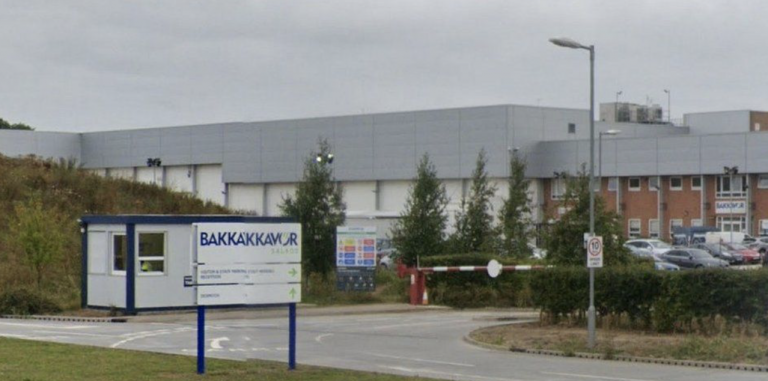New associate director at Armsons Barlow
Study shows 70% of East Midlands motor trade businesses expect to make employee redundancies by the end of 2022
East Midlands manufacturer delivers £1.6m furniture contract in Scotland
Innovative Lincolnshire climate business vying for top national award
Midlands sees fall in permanent placements for first time since February 2021
The latest KPMG and REC, UK Report on Jobs: Midlands survey saw permanent placements decline for the first time since February 2021 and a second consecutive reduction in temporary billings during October. Pay inflation, meanwhile, remained elevated amid reports of both high demand for labour alongside shortages in candidate availability.
The KPMG and REC, UK Report on Jobs: Midlands is compiled by S&P Global from responses to questionnaires sent to around 100 recruitment and employment consultancies in the Midlands.
Renewed decline in permanent placements
The number of permanent placements across the Midlands fell for the first time since February 2021 in October. Moreover, the rate of decline was marked. Recruitment consultancies indicated that the renewed decline in permanent placements stemmed from the weak levels of demand that firms across the UK are currently facing.
The decrease in permanent placements in the Midlands was the second sharpest of the four monitored English regions, behind only London which registered the fastest decline since July 2020. All of the monitored English regions recorded lower levels of permanent placements and three of the four downturns followed increases in the previous month.
Temp billings fall at the fastest rate since June 2020
Temporary billings fell for a second consecutive month at the start of the final quarter. Moreover, the rate of decline accelerated from September and was the quickest since June 2020. Anecdotal evidence suggested that the downturn was linked to the worsening economic landscape in the UK. Other firms mentioned that a shortage of candidates also contributed to the decline.
The fall in temp billings in the Midlands was the fastest of the four monitored regions. Conversely, the South of England registered a marked upturn which underpinned the uptick at the UK level.
Demand for staff across the Midlands continued to increase in October, although rates of expansion remained below the respective historical averages. Permanent vacancies rose at a robust rate but at one which was comfortably below the survey peak recorded in July 2021.
Meanwhile, October data completed two consecutive years whereby demand for temporary staff has increased on a monthly basis. The rate of growth, however, was the slowest since January 2021.
Downturn in permanent staff availability sharpens
Recruiters across the Midlands registered a drop in the supply of permanent staff in October which was the nineteenth in as many months. The reduction was sharp and quicker than in September but remained much softer than seen across much of the past year-and-a-half. Candidates were reportedly reluctant to move positions amid widespread economic and market uncertainty. The Midlands posted the softest fall in permanent candidate numbers of the four monitored English regions whilst the North of England reported the sharpest decline.
Temporary staff availability falls at a softer rate
The availability of candidates for temporary roles in the Midlands fell in October, thereby stretching the current negative sequence to 20 months. Anecdotal evidence suggested that people were currently seeking extra stability and had a preference for permanent positions. Other recruitment consultancies also mentioned that high levels of employment across the UK meant that there was a general lack of candidates. That said, the rate of decline in temporary staff availability was the softest since March 2021. Bucking the wider trend, London registered the first uptick in temp staff availability in a year-and-a-half.
Permanent salary growth eases to 18-month low
October data signalled that salaries for permanent new joiners in the Midlands increased for the twentieth month in a row. Though remaining elevated, the rate of increase was much slower than in September and the softest in a year-and-a-half. The rise in permanent salaries was reportedly reflective of a talent shortage, with firms subsequently forced to increase salaries to entice candidates. On a national level, the increase in permanent starting salaries was led by London, though all four monitored English regions registered marked inflation.
Rate of temp wage inflation the softest since May 2021
Hourly pay rates for temporary staff increased further in October, stretching the current sequence of inflation to just short of two years. Anecdotal evidence suggested that a combination of high demand for staff and a shortage in available labour drove the increase in temp wages. That said, the rate of inflation was the softest since May 2021. The rise in the Midlands was also the weakest of the four monitored English regions. London recorded the steepest increase in temporary pay, followed by the South of England.
Commenting on the latest survey results, Kate Holt, people consulting partner at KPMG UK, said: “The looming recession is clearly impacting the UK jobs market. Candidates’ reluctance to move as a result of the challenging economic landscape has resulted in higher demand for staff across the Midlands but fewer actual placements. Employers are also improving their benefit and development offerings, which has also made a significant impact in the number of available candidates. “The talent war is ongoing in the Midlands and now more than ever, it’s essential that we focus on upskilling the workforce to support and boost economic recovery when it comes. The jobs market will bounce back, particularly if we invest in the skills of the workforce across all sectors of the economy.” Neil Carberry, Chief Executive of the REC, said: “The economic and political uncertainty of September and October has caused employers to become more cautious in their approach to hiring than during the frenzy of earlier in the year. “We’ve witnessed permanent placements decline in the Midlands for the first time since February 2021 and a second consecutive reduction in temporary billings in October. Activity overall, is still well in advance of pre-pandemic levels, however. We will need to watch how this story develops over months to come, but so far this data suggests heightened employer caution, not a retreat from the market. “It remains the case that firms in many sectors are struggling to hire, as hours worked remain below their pre-pandemic level despite record-low unemployment. We’re looking to the Autumn Statement later this month to help with removing the brakes on growth by reforming the apprenticeship levy to build a more effective skills system, improving support to help people move from inactivity to work, and align other policy areas – like work permits – with a growth strategy.”Nottingham retail warehouse sold for £7m
Alpkit scales new heights with latest Crowdfunding campaign
900 jobs at risk as Bakkavor announces closure of two East Midlands sites
£21k pa savings for Academy following ground breaking environmental project
IM Properties pushes button on 340,000 sq ft net zero scheme at Hinckley park
Downsized plans submitted for Lincoln Imp’s Stacey West Stand project
If only taxes were the only barrier to growth: By James Pinchbeck, partner at Streets Chartered Accountants
Four days to go until the East Midlands Expo – the ultimate networking opportunity
For more information on exhibiting at the event click here.
To register to attend the event for free click here.
From property agents to developers, architects, contractors, investors, PR firms, and more, see the list of current exhibitors here.New office and team growth for Loughborough coaching firm
Business coaching franchise ActionCOACH Loughborough has moved into new and bigger office space in The Heritage Building in Loughborough, Leicestershire.
Located in the heart of the Loughborough business community, the new office will provide much-needed and dedicated space for the team to deliver coaching, training and seminars, and will house ActionCOACH Loughborough employees.
The office includes a meeting and board room, which will be available for other businesses to hire out and use for company or team meetings, as well as additional spaces for co-working and the ability for people to hire a desk on a daily basis.
The business has been based in Loughborough since 2015 and the move follows a successful period of growth for the firm, which is led by Managing Director Matt Bull.
Matt said: “I am incredibly proud of the team and all we have achieved as a business over the past few years, and delighted to have moved into a new and bigger office space to operate in.
“We are part of a supportive business community in Loughborough and by providing office and meeting space for businesses, we hope to connect with more people and grow our relationships beyond Leicestershire.”
As well as the office move, personal growth has been achieved for a number of team members including business development executive Jake Kebble, who has been promoted to head of membership development – leading on key events for the business and growing its membership.
Jake started at ActionCOACH Loughborough in November 2021, as part of the Government’s six-month Kickstarter scheme, as a data analyst before being promoted into a BD role.
Coach Kerry Malster has also been promoted to membership manager, she will be looking after and managing all members, social events and ensuring the ActionCOACH Loughborough experience is world class. Kerry will also continue her role as a business coach.
Matt added: “As a close-knit team of ten, we are committed to investing in our team members and I’m delighted that Jake and Kerry have been promoted into new roles within the business. Jake in particular has had a fantastic journey with us and I’m proud to see him grow into a head of role.
“We recently hit our milestone of 50 clients and the goal for 2023 is to continue to grow our client base as well as support local talent and investment in the area. We want to expand our coaches, to serve the demand, and recruit apprentice level and young people to train them to be the next generation of coaches.”
Digitised smart energy networks could save billions in energy costs across the Midlands
As the energy crisis continues, a new Midlands Engine report finds that digitised smart energy networks could save billions in energy costs across the Midlands.
A new report from the Midlands Engine has put forward a plan for the Midlands to become the UK’s first Smart Energy Region, helping tackle both the cost-of-living crisis and climate change. The report, Smart Energy – An Energy System for the 21st Century, was co-authored by the Midlands Engine partnership, Siemens and the University of Birmingham. It calls for the accelerated digitisation of regional energy systems to usher in significant domestic energy savings, job creation, and support for the continued rollout of cheap, clean energy sources. Smart energy systems can include ‘microgrids’, electric vehicles and smart meters, and would use digital technologies and artificial intelligence to balance energy needs across a network. In the case of the Midlands, the report identifies opportunities for consumers and businesses to save up to £70bn in energy costs, while slashing hundreds of thousands of tonnes of CO2 emissions and establishing the region as a world leader in smart energy. This month the National Grid began trialling a scheme using smart meters to help customers access discounts by using less electricity at peak time. The Smart Energy report identifies opportunities for similar schemes for small businesses and electric vehicle charging and highlights ways in which interconnectivity and use of data can drive even greater efficiencies. It calls for a number of initial steps to set the region on the right path, including the rollout of large-scale Smart Energy Pathfinder projects, the creation of a regional energy data taskforce, and the formation of a smart energy skills programme. It highlights the need for public sector support for decentralised energy systems, especially through more local renewable energy generation. These steps would follow a number of regional smart energy projects that are already underway, including the University of Birmingham’s smart campus plan. Combined with the region’s scale of energy utilisation (the Midlands accounts for a sixth of Britain’s electricity and gas demand) and its ambition to reach net zero, the report says the region could become a smart energy exemplar. Lord Bilimoria, Chancellor of the University of Birmingham and President of the Confederation of British Industry, said of the report: “The UK energy system is changing at an unprecedented pace. The ongoing energy crisis has shown how crucial it is that we secure a robust domestic supply of cheap energy, as well as reinforce our commitment to net zero emissions by 2050. “Smart energy systems are a crucial step on the way to achieving these aims, while providing regional growth and supporting high-skilled jobs. It’s fantastic to see the Midlands leading the way in their development, with the University of Birmingham, Siemens and the Midlands Engine combining their expertise to make potentially transformative policy recommendations.” Sir John Peace, Chairman of the Midlands Engine partnership, said: “The Midlands Engine partnership is committed to growing our region’s economy while ensuring a net zero transition for the next generation. The exceptional work of partners to lay the groundwork for smart energy, combined with our world-leading research and manufacturing base, means we are well placed to build on our history of powering the UK by driving forward the implementation of smart energy systems. “Smart technologies will also make an immediate impact, enabling users to better manage energy demand at a time of high inflation.” A focus on smart energy follows numerous recent advancements in the green growth sector in the Midlands. The region was recently chosen to host the West Burton STEP fusion project and has been moving forward with its plans for a hydrogen technologies valley. These are all underpinned by the Midlands Engine’s ten-point plan for green growth, which has set out a roadmap for a 36% reduction in CO2 emissions from 2020 levels, while generating £24.2 billion GVA for the region’s economy by 2041.North Lincolnshire Business Centre snapped up in £14m acquisition run
- Vision Park in Peterborough: Six modern warehouses totalling 15,037 sq ft and set to undergo a refurbishment, providing flexible leasehold accommodation from 1,150-6,781 sq ft.
- Fraser House in Ipswich: A 16,409 sq ft multi-let office building on Museum Street in the town centre where Hurstwood already owns another building. The prominently located, period building is fully let to Savills (UK) Limited, Peopleplus, Netscout, Attwells and Brewin Dolphin.
- Bridge of Don Industrial Estate in Aberdeen: Comprising six warehouse units, totalling 30,470 sq ft and fully let with occupiers including Andrews Hydrographics.
- Mandale Triangle in Thornaby, Stockton-on-Tees: A 30,656 sq ft industrial building that is part vacant and part let to a Gym company.
- Kings Court in North Shields: Situated close to the town centre, this two-storey modern office building totals 78,577 sq ft, the majority of which is let as a courthouse to the Secretary of State, which has been in occupation for more than 20 years.
IDT achieves landmark carbon neutral accreditation
Revenues soar at Leicester-headquartered luxury watch retailer
Leicester-headquartered luxury watch and jewellery group, Watches of Switzerland, has seen revenues soar in the first half of 2022 with a 31% increase in watch sales and 38% increase in jewellery sales taking group revenues to £765m.
Brian Duffy, Chief Executive Officer, said: “We are pleased to report another quarter of strong trading driven by broad based sales growth across our portfolio of world leading partner brands. Demand remained strong through the quarter and continues to exceed supply, with client registration lists extending as consumers respond to innovative new products, impactful marketing and elevated client service.
“The first half of the year has been a busy period of new showroom openings – including five showrooms at the iconic Battersea Power Station in London and additional mono-brand boutiques across the UK, US and now Europe – together with showroom refurbishments as we continue to invest to elevate the luxury experience for our clients.
“Our strong H1 performance underpins our full year guidance, which we have upgraded to reflect the benefit of foreign exchange movements. Looking ahead, we remain confident in our Long Range Plan objectives, supported by a strong pipeline of expansionary projects as we continue with our strategy of investing for growth.”
The Watches of Switzerland Group Foundation has now also approved charitable donations of £2.7 million to continue to support disadvantaged communities in both the UK and US





















